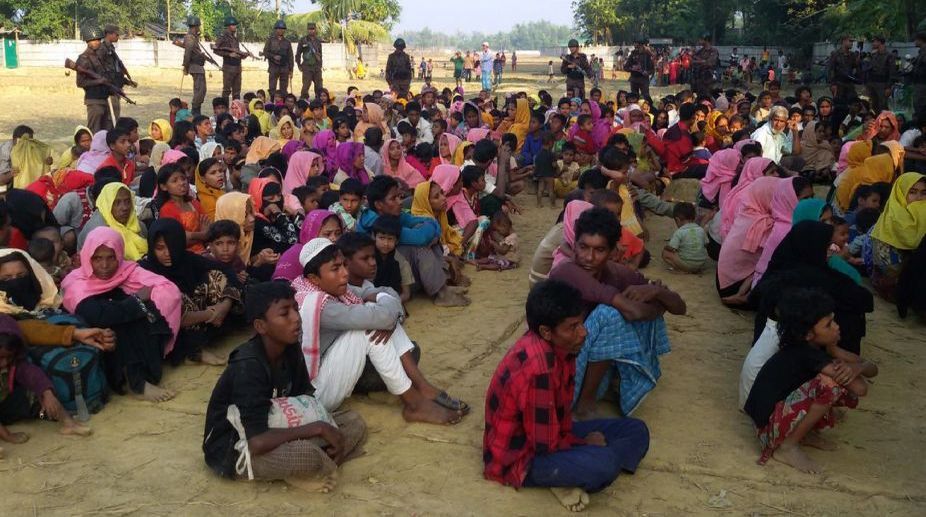Forgotten heroes
Ullaskar suffered immensely after being caught by the British and was sent to the Cellular jail in the intractable Andamans.

Representative image Photo: AFP
Thursday’s agreement between Myanmar and Bangladesh on the repatriation of Rohingyas is on the face of it a measure of forward movement in the midst of the relentless persecution of the predominantly Muslim ethnic group. Unmistakable is the diplomatic underpinning or coincidence ~ 24 hours after the US labelled the junta’s operations against the “nowhere men” as “ethnic cleansing”, and even threatened targeted sanctions against those responsible for what the Secretary of State, Rex Tillerson, has called “horrendous atrocities”. There is little doubt that both Naypidaw and occasionally insensitive Dhaka have responded to the global pressure that has been ramped up after half a million refugees fled across the border to escape persecution and worse, not to ignore Aung San Suu Kyi’s intriguing silence.
The agreement has eventually been signed after a prolonged bout of wrangling over the terms of repatriation. Apparently the state counsellor’s insistence on bonafides has been ignored not least because the Rohingyas, adrift and persecuted from shore to shore, must have lost their documents, if at all they had them. For now, Myanmar has relented to an extent; the refugees will be repatriated from Bangladesh within two months, with a “working group” scheduled to be in place within three weeks. Over the years, this has been a grim displacement. And given the inbuilt political instability in Myanmar and the military’s stranglehold over purported democratic governance, the two-month time-frame carries within it the potential seeds of uncertainty.
Indeed, the Rohingya deal that was signed by the Bangladesh foreign minister, A.H. Mahmood Ali, and Suu Kyi in Naypidaw bristles with uncertainties, which is why the agreement has been greeted by the United Nations with a degree of scepticism. And the two major uncertainties relate to the number that will be allowed back and the time the repatriation process will entail. Nor for that matter is it clear where the thousands will be re-settled in a hostile land. The issue is ever so vital in the context of the extensive destruction of villages, that were once their hearth and home. Closely connected is the issue of safety, one that has been trashed for as long as it has. Both Bangladesh and Myanmar would appear to have ignored one of the fundamentals, i.e. the Rohingyas will have to countenance the surging anti-Muslim sentiment in Myanmar.
Advertisement
No less crucially, the Buddhist populace has been acting in cahoots with the junta to persecute the Rohingyas. The stateless segment has been at the receiving end of communal violence in predominantly Buddhist Myanmar. They have been systematically oppressed by the government, which has even stripped the group of citizenship. What the UN and now America has called “ethnic cleansing” is a faint echo of the horrendous persecution of Serbian Muslims in Bosnia two decades ago. To be allowed to cross over from Bangladesh signifies some progress; it devolves on Myanmar to make the deal work.
Advertisement